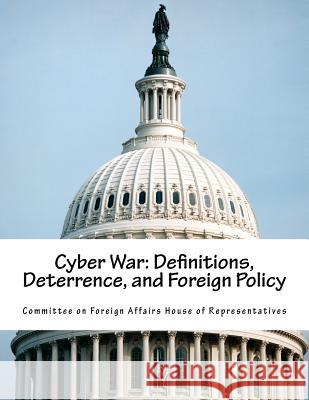Cyber War: Definitions, Deterrence, and Foreign Policy » książka
Cyber War: Definitions, Deterrence, and Foreign Policy
ISBN-13: 9781519617453 / Angielski / Miękka / 2015 / 72 str.
It is no exaggeration to say that we are at the dawn of a new age of warfare. Computers and the Internet have connected people around the world. However, reliance on these technologies has also made us vulnerable to cyber attacks from other countries, terrorists, and criminals. So much so that the Pentagon now counts cyberspace as the fifth domain of warfare alongside land, air, sea, and space. Whether or not an all-out cyber war occurs, it is clear that we are in a state of ongoing cyber conflict. The White House, the State Department, and the Department of Defense have all been hacked, and, of course, the Office of Personnel Management had the sensitive information of more than 21 million Americans compromised. In the private sector, hackers have crashed the computers of Sony executives, seized the personal information of more than 78 million people from the Nation's second largest health insurer, and stolen the credit and debit card information of more than 40 million customers of a major retailer. The magnitude of this theft is staggering, yet it takes companies an average of 205 days to even realize their system has been breached. Across the globe, Estonia found itself at the opposite end of a crippling Russia-backed denial of service attack. A computer worm shut down the air force and navies of France and Great Britain for a time. And an attack by North Korea, coined Dark Seoul, crippled South Korea's banking system. In the coming years, it is likely that Iran will pour more resources into cyber weapons. These have already been used against the U.S. Navy, American banks, a Las Vegas casino, and Saudi Arabia's largest oil producer, all without setting off significant retaliation. Indeed, it has been said that it is exactly the lack of international norms in responding that make cyber weapons so attractive to Russia, China, Iran, and North Korea.
Zawartość książki może nie spełniać oczekiwań – reklamacje nie obejmują treści, która mogła nie być redakcyjnie ani merytorycznie opracowana.











